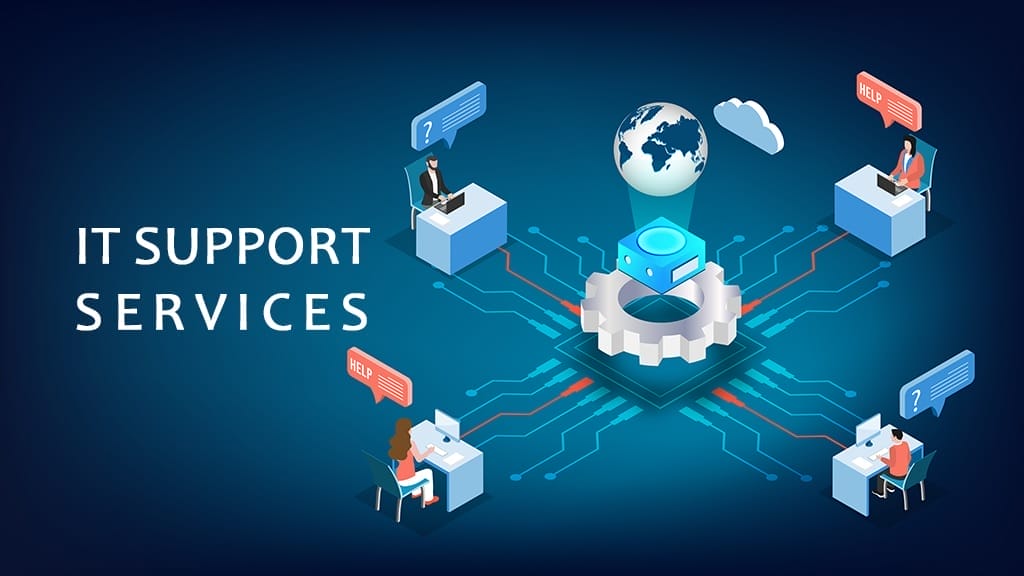
The Expanding Role of IT Support in Business Success
As the digital revolution continues to reshape how we live and work, IT support has become a cornerstone of business operations—no matter the size or industry. Ensuring that your company’s technology is up-to-date, secure, and reliable has never been more critical to long-term success.
But what exactly do IT support services cover—and how can they benefit your business? Let’s explore the seven most essential categories of IT support that keep modern businesses running smoothly.
IT Support Desk
When employees encounter tech problems—such as a network outage, a frozen computer, or a phishing email—the IT helpdesk is the first line of defense.
A reliable IT support desk provides quick, expert solutions to minimize downtime and maintain productivity. Whether it’s software troubleshooting, hardware diagnostics, or network issues, a dedicated helpdesk ensures your team always has someone to call.
Top benefits:
24/7 technical support via phone, chat, or ticket system
Rapid response and issue resolution
Remote and on-site assistance as needed
Network Support
With employees often working remotely or from multiple locations, business networks have become more complex than ever. Even equipment that worked flawlessly a few years ago may now struggle to meet growing demands.
Outsourcing network support to specialists ensures your systems remain optimized, secure, and scalable as your company evolves.
Typical network support services include:
LAN and WAN setup, configuration, and maintenance
Network monitoring and performance optimization
Firewall, VPN, and advanced security protocol management
Cybersecurity
Cyberattacks are among the biggest threats facing businesses today. A single breach can expose sensitive data, disrupt operations, and cause devastating financial losses.
Comprehensive cybersecurity services protect every aspect of your network—from employee devices to connected office equipment—while ensuring compliance with data protection regulations.
Core cybersecurity services include:
Intrusion detection and prevention (IDPS)
Data encryption and secure remote access
Endpoint protection with antivirus and anti-malware tools
Regular security audits and vulnerability assessments
Cloud Services
Cloud technology has revolutionized how companies store, share, and access information. With nearly 60% of small and mid-sized businesses using five or more cloud services, cloud adoption continues to soar.
Third-party IT support providers help businesses migrate to, manage, and optimize cloud systems to enhance collaboration and productivity.
Common cloud services include:
Cloud file storage and secure sharing
SaaS setup and management (e.g., Microsoft 365, Google Workspace)
Cloud-based CRM integration
Hybrid cloud and on-premise system synchronization
Backup and Recovery Services
When disaster strikes—whether from cyberattacks, hardware failures, or network disruptions—data recovery becomes mission-critical.
Backup and recovery services ensure your essential files, systems, and configurations are securely stored and easily recoverable. This reduces downtime, safeguards sensitive data, and protects your reputation.
Backup solutions include:
Cloud-based and off-site data storage
Real-time monitoring and automatic backups
Encryption for data protection
Disaster recovery planning and testing
Managed IT Services
For many businesses, fully outsourcing IT is the most efficient and cost-effective option. A managed IT service provider (MSP) handles everything—from hardware installation to network monitoring and compliance management—so you can focus on growth instead of troubleshooting.
Managed IT services typically cover:
Proactive system monitoring and maintenance
Software updates, patches, and upgrades
Hardware lifecycle management
Data management and compliance oversight
IT Consulting and Strategic Planning
As technology continues to evolve rapidly, businesses need more than just technical support—they need strategic guidance.
IT consulting and strategic planning services help organizations align their technology investments with business goals. Consultants evaluate your existing infrastructure, identify gaps, and recommend solutions that improve efficiency, security, and scalability.
Key benefits include:
Technology roadmap development
IT budgeting and cost optimization
Cloud migration and digital transformation planning
Compliance and risk management strategy
With expert consultation, your business can make smarter decisions that drive long-term success.
Finding the Right IT Support Partner
Choosing the right IT support provider can make all the difference between constant tech frustration and seamless business performance.
XBS Digital is your trusted local partner, offering professional and reliable IT support across Louisville, Lexington, Elizabethtown, and Paducah.
Whether you need day-to-day helpdesk support or full-scale managed IT services, our experts are here to keep your technology secure, efficient, and future-ready.

